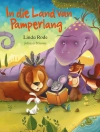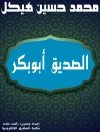In ‘The Brown Fairy Book, ‘ Andrew Lang curates a captivating anthology of fairy tales that transports readers into a magical realm enriched with diverse narratives from various cultures. Prolific in its literary style, the collection showcases Lang’s hallmark folkloric approach, combining lyrical prose with vibrant imagery. This volume is part of Lang’s renowned fairy book series, which sought to collect and preserve the folklore traditions of various nations, reflecting late 19th-century interests in anthropology and the oral storytelling tradition. Each tale is thoughtfully selected, often featuring motifs of adventure, moral lessons, and the whimsical interplay between the mundane and the extraordinary. Andrew Lang, a Scottish poet, novelist, and literary critic, was a fervent advocate for the importance of folklore in understanding cultural identity. His extensive travels and scholarly pursuits in ethnology significantly influenced his selection of tales, which span continents and reveal the interconnectedness of human experience. Lang’s commitment to preserving oral narratives inspired this volume, showcasing not only the richness of fairy tales but also prompting discussions around their societal implications and impact on childhood imagination. ‘The Brown Fairy Book’ is highly recommended for readers of all ages who seek to explore the enchanting world of fairy tales in a scholarly yet engaging manner. This anthology not only entertains but also invites critical reflection on the universal themes and values inherent in folklore. Lang’s work serves as a bridge to understanding the cultural tapestries that shape our storytelling traditions, making it a valuable addition to any literary collection.
Over de auteur
Andrew Lang (1844-1912) was a prolific Scotsman, renowned for his work as a poet, novelist, literary critic, and contributor to the field of anthropology. He is best known for his influence in collecting diverse fairy tales and folklore from around the world, which he compiled into the widely-celebrated ‘Coloured’ Fairy Books series. The novels and literary collections authored by Lang often possessed a whimsical narrative style, replete with elements of fantasy and adventure, which resonated with both his contemporary readers and continue to charm audiences today. ‘The Brown Fairy Book’ (1904), is one of his notable works, wherein Lang assembled stories from the oral and literary traditions of countries as varied as North American, Brazilian, African, and Australian cultures. It is a testament to his literary style, which combined extensive research with a captivating storytelling technique. His writings reflect an intellectual breadth capable of harnessing the cultural nuances of the folk tales he gathered. Lang’s pursuit of fairy tales was driven by his belief in their pedagogical value and universal appeal. Throughout his career, he endeavored to preserve these stories in their most authentically enchanting form, ensuring that the lore and lessons contained within them were accessible to readers of all ages. His efforts shaped a significant part of the Victorian era’s literary landscape and continue to influence the genres of fantasy and folklore studies.












